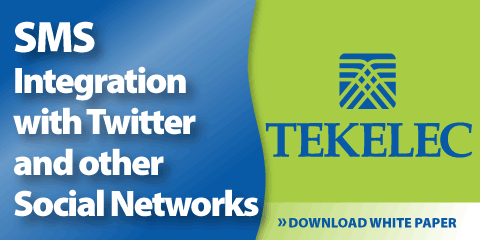
By Phil Britt
Let the Year-End Predictions Begin!
As the year comes to an end, analyst reports are examining the telecom expenditures for the year and using those as the basis for forecasting the growth – or lack thereof – of various portions of the telecom market for 2010.
Even though there are some reports predicting only tepid technology spending growth for 2010, unified communications (the merging of IP telephony, conferencing and collaboration, messaging and other forms of integrated information exchange) are on a steeply rising curve of adoption, according to new study from ABI Research, New York.
According to an ABI research study released at the end of the month, the market for unified communications was just $302 million in 2008, but will rise quickly to nearly $4.2 billion in 2014.
Despite the fast growth projections, in the difficult economy, firms are being careful where they spend those dollars, at least initially.
“Companies have been buying only those component technologies that they think will deliver immediate value,” says ABI Research practice director Stan Schatt. “It’s only later that they start tying it all together as true unified communications.”
|
|
The market for unified communications was just $302 million in 2008, but will rise quickly to nearly $4.2 billion in 2014. |
|



growth of the unified communications market is the lack of interoperability among systems of different vendors.
Even the largest vendors such as Cisco don’t make everything, so there’s a premium on partnerships, according to ABI. Though a few vendors will try to sell end-to-end solutions, but most others will attempt to integrate their offerings with the legacy components. This will lead to a large market for managed services Schatt says, because only the largest companies have the necessary expertise in house.
|
|
|
|

Tying the technologies together provides firms with the full scale of synergies, Schatt adds. For example, many companies have messaging by voice and e-mail, but when they are integrated, a user can “see” voicemails and have e-mails read aloud. Such synergies can deliver increased productivity and efficiency, and greater customer satisfaction.
Beyond the revenue squeeze facing many companies, another factor delaying faster
|
|

While unified communications and managed services are expected to grow sharply, capital expenditures for global telecom service providers is in the midst of a three-year disinvestment cycle, according to Infonetics Research. The expenditures peaked out in 2008, marking the end of a five-year investment cycle, and starting the current downtrend. The reduced spending isn’t expected to be anywhere near as sharp as
|
|






